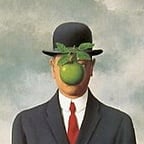Hello Everyone,
As someone who’s religious beliefs are on a shaky ground, what books on atheism can you recommend me to read?
I’m looking for something for beginners / down-to-earth.
deleted by creator
Hahahahaha what a great answer!
You’re absolutely right
Not really approaching religion in anyway, but Bill Bryson - “A Short History of Nearly Everything” is a neat book if your knowledge about the world is grounded in religious teachings.
Basically it goes through a lot of the scientific knowledge we have today and tells the story of how it was discovered, focusing on giving answers to “how we know what you know”. It’s a bit oversimplified in many areas, but it’s still pretty educational, entertaining, and at times funny.
Come to think of it, I wouldn’t really recommend any books on atheism. Atheism is not really its own thing, it’s just the result of not being persuaded by the claims of theism.
For me personally, I actually became an atheist via reading various religious texts, as well as various acclaimed spiritual novels. So sort of the opposite of what you’re asking for haha.
Recommendations based on science and humanism are okay, since that gives you a place to start looking through the secular stance on the mysteries religions claims to have all the answers for. But that also isn’t quite what you’re asking for. Many scientists and philosophers are religious themselves, after all.
Yet a third thing you aren’t asking for: I would check out Matt Dillahunty. He used to do a call-in show in Austin. Mostly just regular religious people calling in, going through their thought process on why they believed, then getting an atheist’s perspective in response. Looks like he’s still very active on youtube these days
I haven’t listened in years, and if I recall some of the most viewed clips were basically just angry arguments lol. But sitting and listening through full episodes is about as down-to-earth of atheist content as I can think of. Just addressing religious claims one at a time
The Demon-Haunted World by Carl Sagan
From what I hear, reading The Bible is a lot of people’s first steps towards atheism.
Reading bible, understanding what the real teachings of all religionse are at its core (be nice to each other, dont kill, help the poor, dont steal aso) and then have a look how many religiouse organisations work and how they go against their own core beliefs
Matthew 22:36-40
36 “Teacher, which is the greatest commandment in the Law?”
37 Jesus replied: “‘Love the Lord your God with all your heart and with all your soul and with all your mind.’[a] 38 This is the first and greatest commandment. 39 And the second is like it: ‘Love your neighbor as yourself.’[b] 40 All the Law and the Prophets hang on these two commandments.”
Basically sums up Christianity.
Good point.
And plus, if you can figure out what “the Lord your God” is supposed to mean, then I think the message in the bible becomes pretty clear.
🙋♀️ grew up with a religious mother, went to church every Sunday, did bible study and got baptized as a teenager. Then I went to college and continued reading the Bible on my own. Without anyone else shaping/interpreting what I read, I quickly disagreed with the text. It was interesting to see how much the church’s interpretation can differ from your own when reading the same text
The Skeptic’s Annotated Bible by Steve Wells, assuming you’re Christian (or I suppose Jewish or Muslim to a lesser extent).
It’s literally the KJV bible with commentary by an atheist. It might be a bit much to sit down and read over several days, but it should be useful.
Honestly, I would recommend not books on atheism per se, but rather ones exploring non-theistic philosophy. Schools of thought amongst atheists and agnostics are just as diverse, if not more so than amongst theists. My world view is made up of many things, humanitarianism, empiricism and so forth. Ideas that build a foundation.
There is also the more emotional side, finding beauty and purpose in life. Personally I find myself coming back to the works of Carl Sagan, particularly “The pale blue dot”. Capturing, at least for me, a lot of essence.
Here is a short excerpt that he read. Just, wow.
I second this. His command of wonder and awe is something I miss dearly. I cherish the words and ideas that he left us.
The Pale Blue Dot is a great start, a great book too.
I mean what’s their to read, if your already questioning just sit and think if you decide you don’t follow your religion or any other than you are an atheist and it’s that simple.
The awakening of intelligence by jiddu krishnamurthi.
Age of reason: https://www.gutenberg.org/ebooks/3743
The best book I’ve read on religion is Small Gods by Terry Pratchett.
It offers criticism of religion and also perspective as to why people view it as a framework for interpreting the world.
Haha, I read this thread hours ago, and then just came back and posted almost exactly this comment, before seeing that you already had 😂
What sort of background are you coming from? That might help recommendations. This is a great resource for example if you’re coming from a YEC background, but not so much for other backgrounds that don’t deny science:
Small Gods is indeed a great choice. I never thought of it as a “book for atheists” and it’s quite unlikely to turn someone religious into a non-believer - but it’s clever, funny and one of my personal favorite Terry Patches books. So, worst case scenario: you’ve read a highly entertaining book.
“The Bible” is the book that ultimately turned me into a convinced atheist. If you actually read it, without having it filtered and read to you by religious people with agendas, it’s hard to continue believing in any of its insane ramblings. But it’s a really tough, slow and often immoral and revolting read. Mostly, it’s just really stupid.
“The Gospel of the Flying Spaghetti Monster” is the opposite. It’s a funny, light and often silly read. It’s not exactly deep, but neither are the books it’s parodizing. As a satire of other religious text it works reasonably well in putting the finger in the wound.
“The Portable Atheist: Essential Readings for the Nonbeliever” is just that: a collection of texts and letters on the subject by some brilliant minds: Bertrand Russell, Albert Einstein, Mark Twain, Lucrecius, Charles Darwin, Richard Dawkins and many more … collected and edited by Christopher Hitchens. As an anthology it allows you to dip your toes in and read the texts you are interested in. Maybe my first choice as serious “atheism for beginners” literature.
An influence on my views was reading an abridged Bible on my own when I was a child to see what my family’s doctrine actually is and to critically examine the merits of its values and realism. School science textbooks also provided some insight into the physical world and its implications.
A unique element of atheism relative to other religious views is that there isn’t a unifying dogma. Generally, atheists agree on evolution and The Big Bang and just basic science stuff, so some elementary literature or media on those could be a start. However, it’s possible to be an atheist and not believe in these things and to instead believe that everything happens and happened for some non-deistic magic reason or because of some other off-the-wall idiosyncratic theory without scientific backing.
Fundamentally, you should ask yourself if you’re interested in atheism due to doubting the feasibility of deities; or if you’re doubting there being a meaning or purpose to life and the universe; or if you’re doubting that your concept of deities could perform certain actions, such as standing by while tragedy happens (or perhaps you’ve got some other reason?). From there, you can direct yourself to the field of study of your choice: scientific, philosophy, and world religions, respectively, but be sure to branch out into the other two options.
You understand my current state of mind.
I just stopped believing in existence of deities and the existence of inherent meaning of life (not to mistake it with value of life).
The world is just a mess beyond our comprehension and we tend to attribute random events beyond our comprehension to the grand plan of things.
I do think that life is much more beautiful with the acceptance of atheism, mortality (no afterlife), personal and sexual freedom. I tend to just enjoy the moment and the life I have while I still have it knowing that this is it, this isn’t a preparation for what comes next. This is it.
I’m still against mocking religion because I find it to be in poor taste, in the same vein like mocking someones gender, nationality, sexual orientation.
Atheism isn’t a religion, so there isn’t “must read books” nor mandatory workshops. Do what you please.









